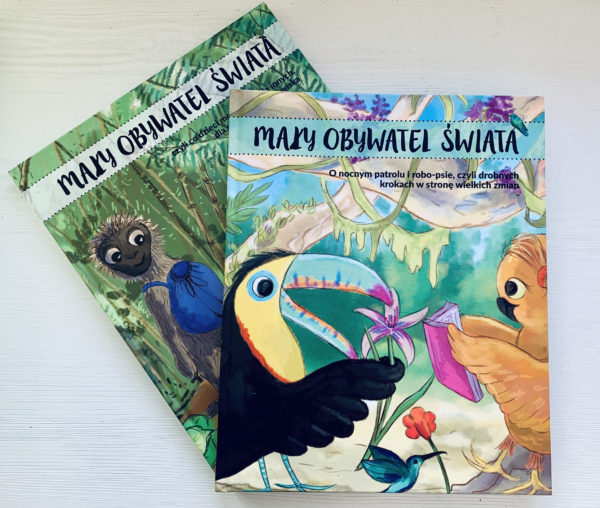

Embarking on a green living journey with kids opens up a world of opportunities to nurture environmentally conscious habits and foster a deep connection with nature. Raising an eco-conscious family isn’t just about reducing our environmental footprint; it’s about instilling a profound sense of responsibility and respect for the planet. Many families struggle with the complexity of incorporating sustainable practices into their daily routines. This article will delve into practical strategies for green living with kids and provide actionable advice to create an eco-conscious family culture. We will explore various aspects, including introducing recycling practices, fostering water conservation, and promoting sustainable choices, while keeping it engaging and fun for the whole family. This guide will explore various methods with tangible examples to help you get started.
Introduction to Green Living with Kids
Understanding the Importance of Early Environmental Education
Green living with kids is about more than just reducing waste; it’s about instilling a deep-rooted appreciation for the environment. Early exposure to eco-friendly practices lays the foundation for a lifelong commitment to sustainability. Children are highly receptive to learning and adopting new behaviors, making it an ideal time to plant the seeds of environmental awareness. Studies have shown that children who participate in environmental activities exhibit a greater sense of responsibility and empathy towards the planet. This positive association promotes a desire to protect and preserve our natural resources.
Identifying Common Challenges
Many parents face challenges in incorporating sustainable practices into their family’s daily routines. Juggling work, school, and extracurricular activities often leaves little time for dedicated environmental initiatives. Another significant challenge involves finding engaging ways to educate children about complex environmental issues. Often, children face conflicting messages about environmental issues, creating confusion and a lack of motivation to make positive changes.
The Path to an Eco-Conscious Family
This guide will provide actionable steps to cultivate an eco-conscious family environment. We will explore simple yet impactful strategies for reducing waste, conserving resources, and promoting sustainable choices. From introducing recycling practices to fostering water conservation, each step is designed to be both educational and fun for the whole family. This comprehensive guide will equip parents with the tools and resources needed to empower their children to become responsible environmental stewards.
Building a Waste-Free Home
Implementing Effective Recycling Practices
Creating a waste-free home involves a multi-faceted approach. Start with effective recycling programs, categorizing materials correctly, and actively participating in local recycling initiatives. Teach children to distinguish between different recyclable materials, empowering them to sort and dispose of them appropriately. For instance, you could have a designated recycling bin in the kitchen and another in the living room, clearly labeling them and explaining the difference between various materials. By providing clear instructions and visual aids, you can greatly improve recycling efficiency.
Minimizing Consumption and Promoting Reuse
Before purchasing any new item, encourage critical evaluation. Ask yourselves: “Do we truly need this item?” or “Can we reuse something already in our possession?” Encourage children to think critically about the impact of consumption by prompting discussions about the origins of materials, production processes, and proper disposal. Encourage the use of reusable shopping bags and water bottles to limit plastic waste. You can also involve your kids in upcycling projects, turning old clothes into rag dolls or crafting decorations from discarded cardboard.
Conserving Water and Energy
The Importance of Water Conservation in Everyday Life
Water conservation isn’t just about saving water; it’s about understanding its vital role in our ecosystem. Explain to your children how water scarcity affects our lives and the environment. Introduce simple water-saving techniques like fixing leaky faucets and taking shorter showers. You can also organize family challenges to see who can use the least amount of water in a week. Illustrate the connection between water conservation and overall ecological balance.
Energy Efficiency at Home
Promote energy efficiency by turning off lights when leaving a room, unplugging electronics when not in use, and switching to energy-efficient appliances. Educate children about the sources of energy and their impact on the environment. Encourage children to participate in energy-saving initiatives at home, such as switching to LED light bulbs. Create a family leaderboard to track who saves the most energy every month.
Cultivating an Eco-Friendly Lifestyle
Making Sustainable Choices as a Family
Promoting sustainable food choices is crucial in reducing our environmental impact. Encourage your children to explore locally sourced fruits and vegetables, and opt for seasonal produce to minimize transportation impacts. Talk about the environmental footprint of food production and the importance of sustainable agriculture. Encourage the consumption of plant-based meals to further reduce meat consumption’s environmental impact.
Supporting Eco-Friendly Businesses
Educate children about eco-friendly businesses and products. Discuss the benefits of purchasing from companies committed to sustainability, such as those using recycled materials, supporting fair trade practices, or reducing their carbon footprint. Take the family to local farmers markets or support community-based initiatives that prioritize environmental responsibility.
Encouraging Environmental Awareness
Nature Walks and Environmental Explorations
Organize family nature walks or visits to local parks to foster a deeper connection with nature. Encourage children to observe and appreciate the natural world around them, highlighting the beauty and importance of biodiversity. Nature exploration instills a sense of wonder and appreciation, making environmentalism a natural part of their lives.
Learning from Local Experts and Environmental Organizations
Explore environmental organizations in your community and invite speakers to share their knowledge and insights. Attend workshops or participate in programs offered by local environmental groups to foster a greater understanding of environmental issues. Connect with organizations to find resources that will help teach your kids about environmental conservation in an engaging and educational way.
Frequently Asked Questions
Q: What are some simple green living habits for kids?
A: Simple green living habits for kids include reusing items, reducing waste, conserving water and energy, and choosing eco-friendly products. Encouraging kids to participate in these activities instills a sense of responsibility and respect for the environment. This could involve things like using reusable water bottles, bringing reusable shopping bags to the store, or turning off lights when leaving a room.
In conclusion, raising an eco-conscious family through green living is a rewarding journey that benefits both your children and the planet. By instilling sustainable habits and values early on, you empower your children to become responsible global citizens. Embrace the challenge and inspire a brighter, greener future for generations to come! Ready to start your green living journey? Explore our resources to get started.